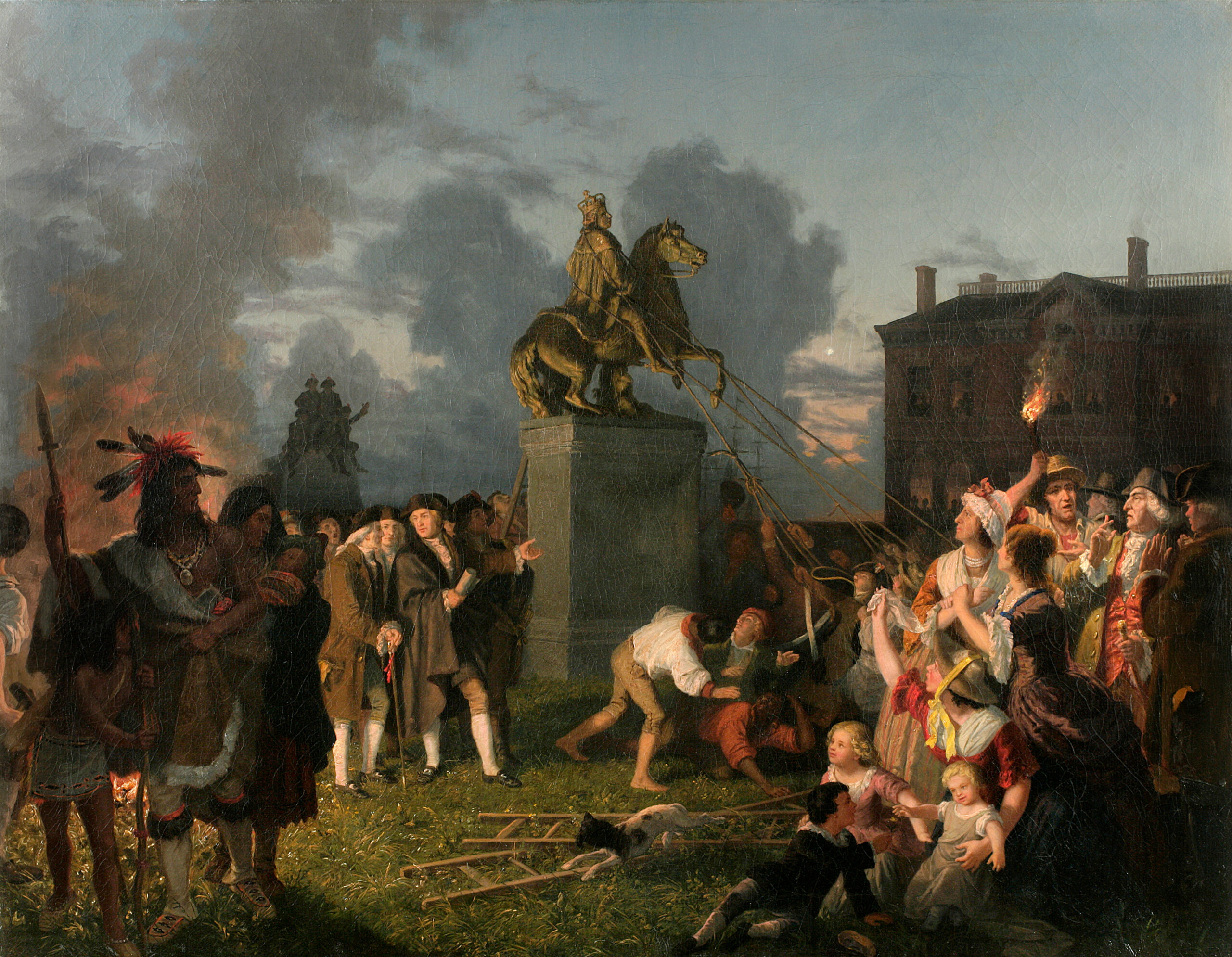
- This event has passed.
Monuments: Commemoration and Controversy
February 27 @ 5:00 pm - 7:00 pm
Free

The Binghamton University Art Museum presents Monuments: Commemoration and Controversy, organized by The New York Historical, on view February 27 to June 14, 2025. The exhibition explores public monuments and their representations as points of debate over national identity, politics, and race. Monuments offers a historical foundation for understanding recent controversies, featuring fragments of a torn-down statue of King George III, a replica of a bulldozed monument by Harlem Renaissance sculptor Augusta Savage, and a maquette of New York City’s first public monument to a Black woman (Harriet Tubman), among other objects. The exhibition reveals how monument-making and monument-breaking have long shaped American life as public statues have been celebrated, attacked, protested, altered, and removed.
Monuments: Commemoration and Controversy is curated by Wendy Nālani E. Ikemoto, Vice President and Chief Curator at The New York Historical. The exhibition is supported by the Terra Foundation for American Art. Additional support is provided at Binghamton University by the Office of the Provost, the Division of Diversity, Equity and Inclusion, the Harpur College Dean’s Office, the Binghamton Fund for Excellence, the Kaschak Institute for Social Justice for Women and Girls, and Rebecca Moshief and Harris Tilevitz ’78.
Also opening in the Mezzanine Gallery is Existential Color: Photography from the Permanent Collection, organized by John Tagg, SUNY Distinguished Professor of Art History and Luisa Casella, Photograph Conservator, Fellow of American Institute for Conservation. In 1976, John Szarkowski, Director of the Department of Photography at the Museum of Modern Art, New York, hailed the arrival of a “new generation of color photographers” who saw color as “existential,” “as though the world itself existed in color.” This “new generation” included William Eggleston, Stephen Shore and Joel Meyerowitz, whose work here prompts a wider re-examination of color in Binghamton University Art Museum’s photographs collection. Within this exhibition, which features works made between the mid 1970s and the early 2000s, a display of historical processes dating back to the mid-nineteenth century shows that color was an integral part of photographic expression from its very beginnings. What viewers are asked is whether Szarkowski’s notion of a decisive break holds up, or whether the question of color and photography has to be seen from a much longer and broader historical perspective.
In the Museum’s Lower Galleries, three small exhibitions open: Chiura Obata: Japanese Art in America, curated by Yao Shen He ’27; History and Myth: Violence in Early Modern Prints, curated by Leah Dascoli ’26; and Japanese Design and the Arts and Crafts Movement in New York, curated by Joseph Leach, Curator of Collections and Exhibitions.
For details on upcoming programming, see our “Events” page and social media.
All events are free and open to the public.


